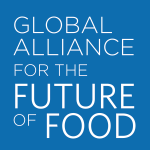
©Wikipedia
At the launch of the ‘Scientific and Economic Foundations’ report in June 2018, the Framework was still untried, untested and thus unproven. The immediate next step was to move from analysis to action and commission pilot studies that use and apply TEEBAgriFood and its Framework on the ground. In addition to the country implementation initiatives, this pilot study was designed to deliver quick feedback and results on the viability of the Framework.
This study proposes to apply the TEEBAgriFood Evaluation Framework to two principal agri-food systems that predominate in bringing land use change to the Brazilian Amazon:
- large scale soybean/maize systems; and
- multi-scale cattle ranching for beef and dairy products.
The two systems intersect in land use transition (i.e. soybeans/maize production usually following cattle ranching in opening forest frontiers), but in many areas such systems now coexist on the same farms, while soybean/maize provides feed to more intensive livestock production. Both also produce feedstocks for a burgeoning biofuels industry (tallow from slaughterhouses and soybeans for biodiesel, and maize for ethanol).
This report evaluates the significant impacts and externalities of specific commodity chains, as well as the ecosystem services arising from forest retention in the Amazon, with reference to the TEEBAgriFood Evaluation Framework. The study offers the opportunity for a test of applications, i.e.
- typology comparison (comparison of externalities faced and relative costs of abatement at different scales of cattle raising from smallholder through ranching) and
- alternative policy scenario evaluation (e.g. impact of policy instruments on transition from BAU to sustainable livestock intensification or low-input crop production).
Specifically, regarding item b) on policy scenario evaluation, the study focuses on the potential use of external cost assessment to inform proposals for adjustment in financial incentives (e.g. interest rates) and specific practices promoted by public credit schemes such as the Low Carbon Agriculture (ABC) plan of the Ministry of Agriculture. The investigators will obtain feedback from stakeholders associated with the two production systems under study as to their relative sensitivity to such financial instrument adjustments when it comes to making investment decisions.
Download: Full report | Executive summary

